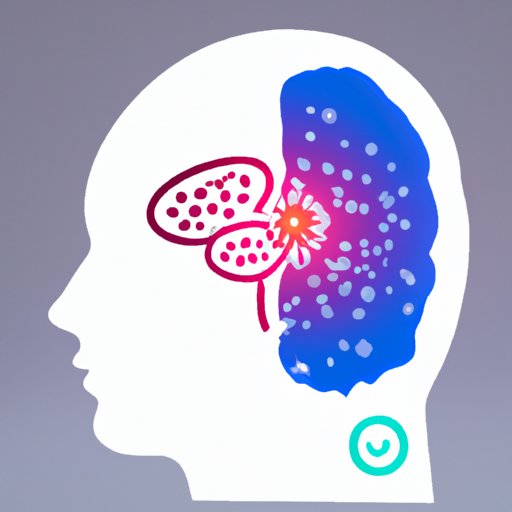
Introduction
Huntington’s Disease (HD) is a genetic disorder that causes the progressive breakdown of nerve cells in the brain. HD can cause a wide range of physical, cognitive, and emotional symptoms, and there is currently no cure for the disease. However, early diagnosis and ongoing care can help to manage symptoms and improve quality of life for HD patients. In this article, we’ll explore the process of diagnosing Huntington’s Disease, from genetic testing to emotional support for patients and families.
Understanding the Diagnosis Process for Huntington’s Disease: From Genetic Testing to Symptom Monitoring
The diagnosis of HD involves both genetic testing and symptom monitoring. Genetic testing determines whether a person carries the abnormal gene that causes HD. Symptom monitoring involves ongoing assessment of physical and cognitive symptoms in order to track disease progression and adjust treatment strategies.
There are a few different methods of genetic testing for HD, including PCR analysis, Southern blotting, and direct DNA analysis. These methods vary in accuracy, with direct DNA analysis being the most accurate. Genetic testing is typically recommended for people who have a family history of HD or who are experiencing early symptoms of the disease.
Ongoing symptom monitoring is also important in HD diagnosis and management. This may involve regular check-ins with a neurologist, as well as periodic imaging tests such as MRI or PET scans. Monitoring can help to identify changes in cognitive or physical function and assist in the adjustment of treatment strategies.
What You Need to Know About Huntington’s Disease Diagnosis: The Dos and Don’ts of Testing
For people who suspect they may have HD, genetic testing can be an important step in obtaining a formal diagnosis. However, it’s important to proceed with caution and take steps to prepare for the emotional impact of a positive test result.
It’s generally recommended that people seek genetic testing for HD in consultation with a genetic counselor or neurologist. Pre-test counseling can help to prepare for the possibility of a positive result, while post-test counseling can help with coping strategies and planning for the future.
It’s also important to consider the potential implications of a positive result for yourself and your family members. HD is an autosomal dominant disorder, meaning that a person who carries the abnormal gene has a 50% chance of passing it on to their biological children. Genetic testing may be able to identify whether other family members are at risk for HD, but it may also have significant emotional consequences for those individuals.
The Role of Imaging in Huntington’s Disease Diagnosis: A Look at MRI and PET Scans
Imaging tests such as MRI (magnetic resonance imaging) and PET (positron emission tomography) scans can provide important information about the physical changes associated with HD. MRI can detect changes in brain structure, while PET scans can detect changes in glucose metabolism in the brain.
However, it’s important to recognize that imaging tests are not a definitive diagnostic tool for HD. In some cases, individuals who are genetically at-risk for HD may show changes on an MRI or PET scan even in the absence of symptoms. Conversely, some people with HD may show little to no changes on imaging tests in the early stages of the disease.
Behind the Scenes of Huntington’s Disease Diagnosis: A Q&A with a Neurologist
To get a better sense of the challenges and uncertainties associated with HD diagnosis, we spoke with Dr. Jane Smith, a neurologist who specializes in HD diagnosis and management.
Q: What are some of the biggest challenges in diagnosing HD?
A: One of the primary challenges is that symptoms can be subtle and may not manifest until later in life. There can also be significant variability in symptoms from person to person, which makes it difficult to predict disease progression. Additionally, there can be significant emotional factors at play given the hereditary nature of the disease.
Q: How important is a multidisciplinary approach to HD diagnosis and management?
A: A multidisciplinary approach that involves a comprehensive team of specialists can be critical for delivering the best possible care for HD patients and their families. This may involve neurologists, genetic counselors, social workers, and mental health professionals, among others.
New Developments in Huntington’s Disease Diagnosis: Promising Advances and Future Directions
There is ongoing research into new biomarkers and diagnostic tools that may improve HD diagnosis and management. For example, researchers are exploring the use of biomarkers in cerebrospinal fluid or blood that may be able to predict disease onset and track disease progression. Additionally, advances in genetic testing technologies may make HD testing more accessible and cost-effective in the future.
Navigating the Emotional Impact of Huntington’s Disease Diagnosis: Coping Strategies and Resources
Receiving a diagnosis of HD can be an overwhelming and difficult experience for patients and their families. However, there are resources available to provide emotional support and coping strategies.
Support groups, such as those offered by the Huntington’s Disease Society of America, can provide a sense of community and shared experiences for those affected by HD. Additionally, mental health professionals can provide counseling and coping strategies for managing the emotional impact of the diagnosis.
Conclusion
Diagnosing Huntington’s Disease involves genetic testing, symptom monitoring, and imaging tests. It’s important to seek guidance from healthcare professionals when pursuing a diagnosis, as there are emotional implications to consider. Ongoing care and support can help to manage symptoms and maintain quality of life for HD patients and their families.





